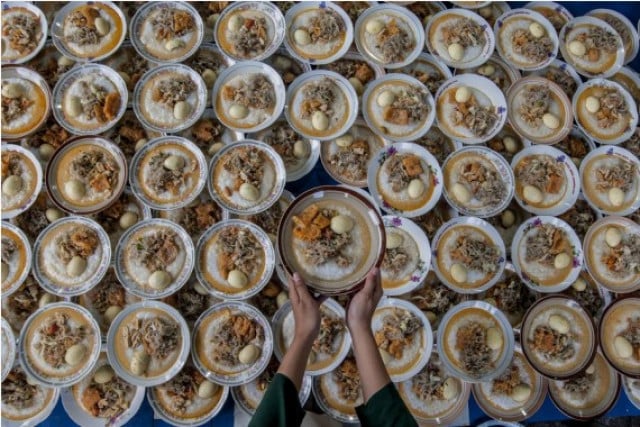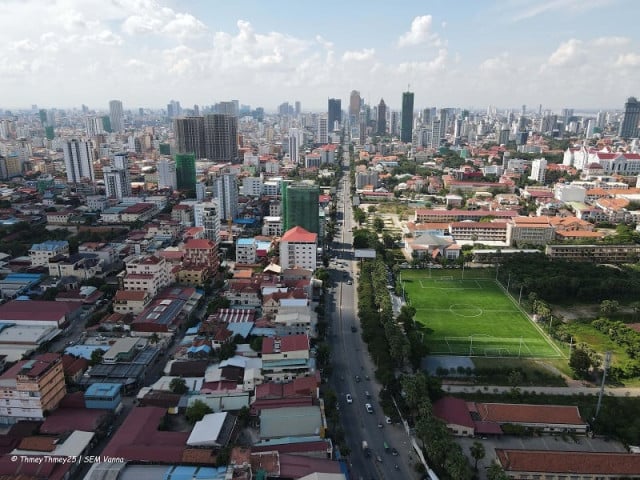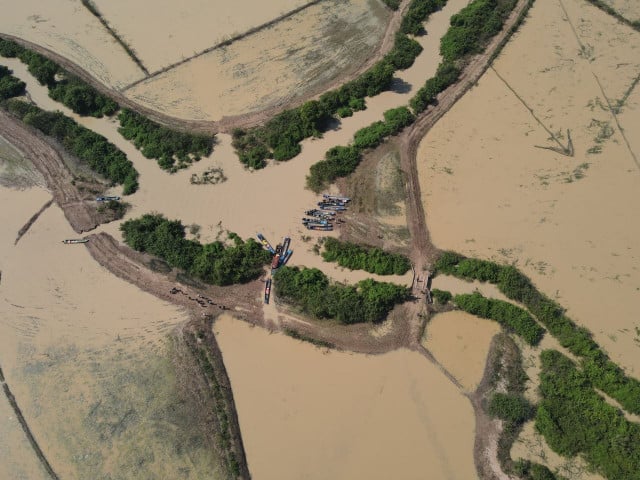Indonesian Muslims break fasting with sweet "iftar" meals, friends reunion

- By Xinhua News Agency
- April 18, 2022 5:22 PM
Indonesian Muslims, with the archipelago's diverse ethnic cultures, enjoy various types of food including Kolak and other sweet dishes such as Ketan Bintul rice, Kicak, and Barongko.
JAKARTA-- When the sun is about to set, Tri Ratnasari starts to make compotes, locally known as Kolak, and iced fruit drinks for the family's first meal at her home in East Jakarta.
"We are used to breaking our fast with sweet foods, to replenish energy after fasting all day, as taught by our prophets," Ratnasari told Xinhua.
Kolak is made of pieces of pumpkins, sugar palm fruit, and bananas, boiled with coconut milk, pandanus leaves, and brown sugar.
Fasting is practiced by Muslims all over the world in the Islamic holy month of Ramadan from sunrise to sunset for 30 days when they can't eat or drink, with a lot of thoughts naturally given to what to eat and who to eat with for the first meal after fasting.

Indonesian Muslims, with the archipelago's diverse ethnic cultures, enjoy various types of food including Kolak and other sweet dishes such as Ketan Bintul rice, Kicak, and Barongko.
Ketan Bintul with sticky rice topped with roasted grated coconut and spices tastes more favorable with the aromatic beef soup. Kicak is a combination of steamed glutinous rice flour with coconut milk, jackfruit, and grated coconut, while Barongko is made from bananas, eggs, coconut milk, sugar, and salt wrapped in banana leaves.

Take a glimpse of the menu during Ramadan, it is not hard to figure out why the sales of sugar are well up on other months.
During the month of fasting, food stands alongside the roads are surrounded by anxious people every afternoon. For office workers, appetizers including pudding, juice, and local snacks are a must-have before they could arrive home and enjoy the big meal.

Samsuddin and his colleague Kartika Utami were anxiously waiting in rain for the vegetable salads and rice cakes to be packed at a marketplace near their office in South Jakarta. With an umbrella in one hand and bags of food in the other, they did not stop hunting for more despite the rainfall.
Some people use the time for "iftar" to reunite with their old friends.
Vinna Rizki, 35, gathered with her friends on Thursday at a restaurant in Jakarta, when they pictured their college days together and shared news about themselves.
"This is the happiest iftar for me after the pandemic kept us apart for almost two years," Rizki said, "a face-to-face meeting with friends after a long hard day is even more soothing than a nice 'iftar'."















